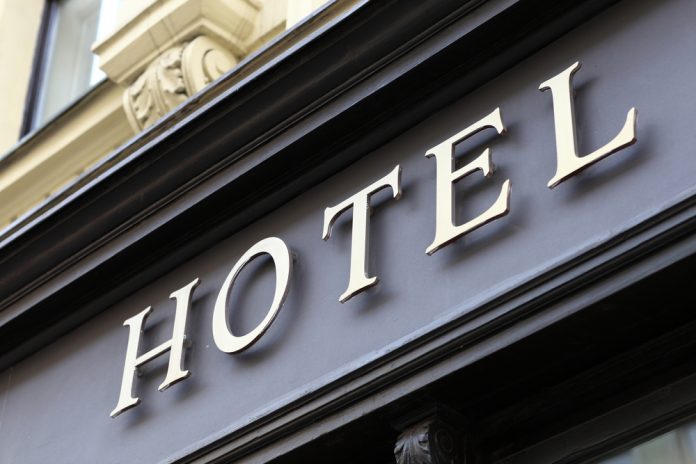It’s vital for hotels to have a good marketing strategy in place if they are to attract the maximum number of guests and increase their revenue. But on top of the usual techniques, sometimes new trends arise that call for fresh methods of promoting a property.
With 2017 now in full swing, what are the latest crazes in the hospitality world that you might want to consider getting on top of? Let’s take a look at some of them.
1.Focus on the basics to compete with OTAs The reach of online travel agents (OTAs) is ever-increasing, with TripAdvisor having improved its Instant Booking capabilities recently and Google also launching its Trips feature last year to better cater for travellers. Although they can be a useful part of a hotel’s distribution strategy, it is understandable that marketers will want to achieve direct bookings over having to pay the middle man. You can do this by focusing on fundamental things like investing in your mobile offering and providing services like a good Wi-Fi login with links to helpful information such as local amenities.It’s also a good idea to create an actionable database on your past bookings, which will give you an insight into future reservations and also help you to better cater for your current and repeat bookings – for example, will you remember that the person coming back for another business trip is vegan, or that they like an evening meal from room service? It’s all about creating amazing guest experiences using deep insights into your visitors and can easily be achieved with today’s connectivity. You don’t have to beat the OTAs – just exceed people’s expectations and encourage them to talk about it.
2. The evolution of the loyalty programme Many hotels have offered loyalty programmes for a number of years, but they are starting to evolve. This is essential, because we have reached a point where guests have subscribed to so many that they just aren’t special any longer.Even the big brands are taking a fresh look at their rewards schemes, including Hyatt as a notable example. This company is aiming to build a new community of engagement with its customers by offering more points, but also opening up new ways to earn free nights, providing chances for upgrades and adding perks like free parking or no resort fees as a way of making its user experience seamless and pleasant.
At Hilton, residents can earn airline miles with their stays, giving them impetus to book with them rather than their competitors. Across the board, brands are moving away from undifferentiated discounting systems towards personalised loyalty pricing that utilises customer data to provide real incentives for reservations. This gives the guest instant gratification that’s more valuable than rates they can get with OTAs and doesn’t leave them massing points but wondering when they will ever see a reward.
3. Content is still king Content published via the internet may have been a marketing essential for some time now, but it is just as important as ever – in fact, more so as traditional paid advertising continues to lose its impact. Hotels should be investing in a comprehensive and long-term search engine optimisation strategy that boosts brand recognition and also builds relationships with would-be guests. Images are a vital part of this, since they can tell a story and make people aspire to stay with you, as are hotel social media channels and their ‘likes’, comments and instant shares. Don’t forget that reviews count as marketing content too, as many travellers rely on word of mouth and want to know that real people like them have experienced what you have to offer, while video is getting more and more essential as a method of communication. When you’re putting together your own content strategy, aim to communicate, listen, be helpful and solve problems, all the while reinforcing the assertion that your hotel is the best possible place for their trip.You want to be informative and high-quality so that people trust you and become loyal to you without even realising – and that’s when all your hard work pays off.
4. Mobile is all-encompassing It’s no longer enough to still be getting your head around the fact that you need to ensure your website is mobile-compatible – on-the-go browsing and booking is now a way of life for modern travellers. Conversion rates via mobile channels are growing all the time and Google is in the process of switching to a mobile-first way of indexing that means you’ll be penalised if you don’t get on board. The search giant’s research recently discovered that 82 per cent of travellers haven’t chosen which hotel they are staying at when they first book their trips, while 72 per cent are looking for the most relevant and useful information as opposed to a specific brand.
Since 67 per cent are more likely to book with the company that provides the most useful information, this takes us back to the point about content marketing above.It’s also essential to put the best booking engine for hotels you can get on your mobile site, as Hotels.com reports that 42 per cent of people have booked a hotel on their mobile devices, while half said their smartphones make them more spontaneous over making bookings – you don’t want to miss out on this ‘off-the-cuff’ business. And with Google finding that up to 69 per cent of travellers don’t book on their mobile devices because of usability issues such as buttons that are too small, making your hotel mobile-friendly could help you stand out and fill this gap in the market.These four trends demonstrate how offering a personalised approach that suits the way guests want to book hotels in the 21st century might ensure your property remains competitive and maximises its revenue in 2017.







